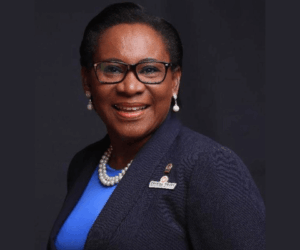The other day my friend, brother and colleague, the much-respected broadcaster Cyril Stober, was laying eggs about the use of the now well-known Nigerian parlance, ‘standing on well-established protocol’. Every time I teach alongside Cyril on the well-received Executive Masterclass on Public Speaking, he refuses to accept the parlance as something that should be propagated. But I am not all in with his views because I believe that having colonised us, the English would have to deal with some peculiarities within the Commonwealth, such as Nigerian English or even Kenyan English, as the case may be.
Perhaps Mr Stober’s gripe is with its usage within official spaces. While I get his point, I find that as a professional compere, it’s a better option than having persons of note insist on mentioning everyone in the room, including people whose mention adds nothing much to the event other than self-aggrandisement. I am quite happy to have them stand on my well-established protocol rather than to do us all in by reeling out some of the persons I just mentioned and some more. Standing on these protocols saves us time, and more importantly, the English know that language is a growing, breathing entity. This might one day make it into a dictionary that looks at English usage.
Look at words from Patois in the carriers and many words in English which originally came from Arabic or even Italian. Cyril, please allow us to stand on our protocols. It is uniquely Nigerian. My study of Nigerian English as an elective opened my eyes to the fact that there are many words and phrases that have made it into the language that have come to stay across the world. It is what it is. It took me a while to understand my late Kenyan friend, Ms Ruguru Githaiga, when we were both in school in England many years ago. She did not speak a word of pidgin, and I did not speak Swahili, so as African sisters, we could not find a common language to speak in public other than English.
And so when we needed to banter, make fun or gossip, it was impossible. This led to my learning my now passable Swahili. But the very Kenyan English phrase, ‘You are enjoying me,’ became a thing between us because it befuddled me in her usage of it for a while. And she used it quite often. It’s Kenyan English for ‘you must be joking’. Difficult to believe but true. Used quite informally to mean you are kidding me. Quite hilarious and strange to a Nigerian, but well understood by most Kenyans. Who can challenge that? Not even the English can because the sender and the receiver in Nairobi understand the message. And really, this is the essence of a language. To be understood by the users.
In Nigeria, for example, English is morphing daily. Add to the mix the usage of words by the Gen Zs, and things can become awkward. Who does not understand how far? In Nigerian English or Pidgin, when we say ‘which side’, which slowly became ‘who sigh’, it is still well understood to mean it did not happen. What about you? ‘Don Blow’ means you have become famous and have made loads of money. As a citizen living in Nigeria, I truly miss our English peculiarities and truly enjoy them.
The one I cannot quite understand is, ‘How was your night?’ Although I studied English at the university, I am not that antiseptic about it being spoken in Received Pronunciation by all and sundry. Public office holders and broadcasters who are on English channels must, as a matter of course, speak well, but they do not have to sound like the Queen of England or become too affected in their speech. As a broadcaster, people are surprised that I am able to break into proper Pidgin English, which I love to speak from time to time. But I digress. Yes, we were talking about your night. Indeed, what does this phrase mean in any English? In pure English, Nigerian English or even in Patois? Perhaps I don’t understand it.
My lack of understanding of this phrase emanates from my struggle with what the answer is expected to be. Do they really want to know my night status? My bed? My activities? Did I fly on a broomstick? No sniggering! Some people within African mythology do, but we can also ask the author J.K. Rowling, whose fame is tied to stories about flying on a broomstick and other such matters.
But seriously, what does this inquiry mean from a total stranger? Are they perhaps interested in people’s other room tales?
But these people who ask how your night was, do they really know what they are asking, and can they really deal with genuine answers to the question?
By my estimation, ‘How was your night?’ is an insidious, invasive question that requires no response, as I do not wish to discuss the state of my night with a complete stranger or even with friends and family.
But you know what? You may have a different opinion. I would be glad to hear your take on this matter. But do not take the liberty to tell me how your night was. I am not interested. Let’s discuss the phrase ‘How was your night?’ and whether it qualifies to be admitted as Nigerian English. I wait fervently for your responses.









